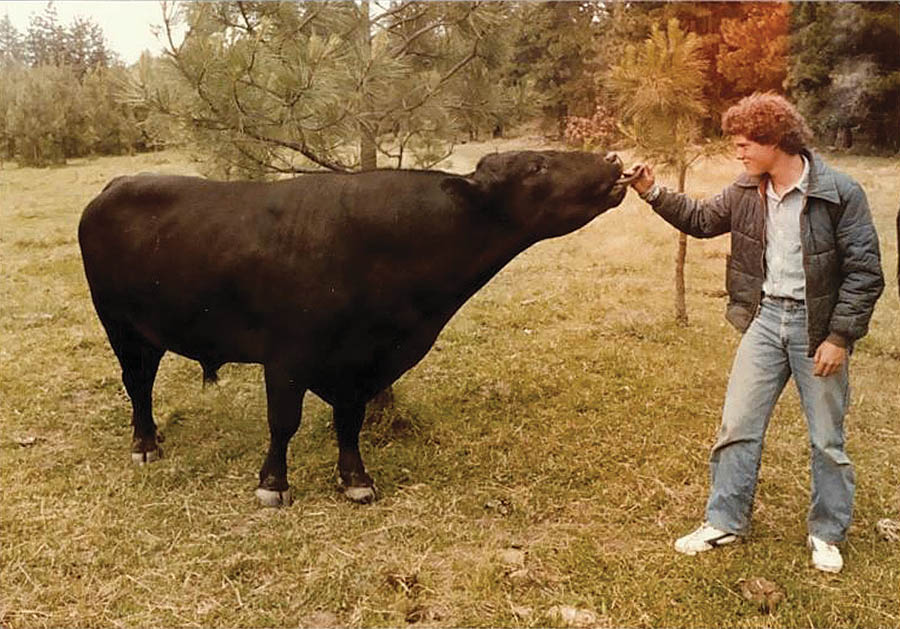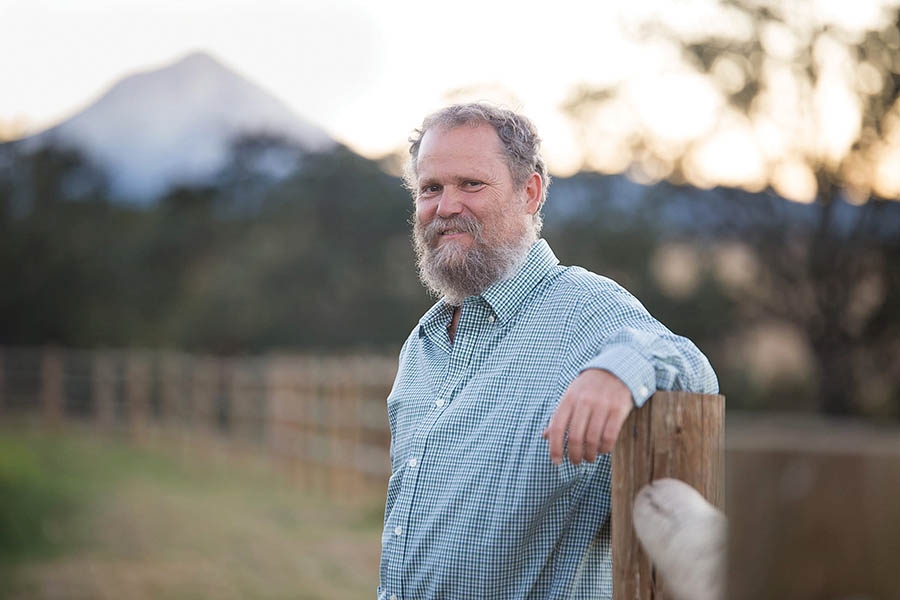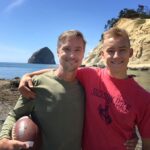The CEO of Azure Standard describes how a tangle with the IRS shaped his love for the land.
I had dreamed about going to college, getting a degree in agriculture and becoming a horticulturist.
I grew up on my family farm in Dufur, and I knew that horticulture was in my future. I loved farming, I loved our farm, and I loved to learn.
But as sometimes happens in life, a curveball is thrown at you and you have to rethink your dreams.
Early in my junior year of high school, my father got in a tangle with the IRS.
He really hadn’t done anything wrong, but they sent him a great big bill. My father thought and lived like a farmer: Either it’s right or it’s wrong, either I owe this money or I don’t owe this money.
He felt like there should be an arbitration to decide whether to pay the bill, but with the IRS, it doesn’t work that way.
The IRS put a lien on my father and on everything he owned.
They seized every bit of money and all bank accounts that he had until he pretty much didn’t have a cent left to his name. And the IRS would take 100% of any payment he received for any work that he might do.
“As sometimes happens in life, a curveball is thrown at you and you have to rethink your dreams.”
One morning, the IRS came to the farm and took every piece of farm equipment worth taking.I think there were 27 IRS agents, plus a bunch of tow-truck drivers and loading people.
They showed up on the farm unannounced and hauled every piece of equipment away. For a 17-year-old to wake up one morning and have the family farm swarming with IRS officers was traumatic.
Thankfully, land ownership technicalities made it so the farm itself was not able to be taken by the IRS but there was no way that my father could raise any funds.
He couldn’t sell anything. He couldn’t buy anything. He couldn’t get paid to work. It seemed that the IRS was trying to break him completely.
On agricultural ground, when you have a lot of acres, the property tax bill is pretty high. At that time it was $10,000, but in the 1970s, that was a fair amount of money.

The author as a young man.
But I loved the farm and after learning about the soil, I’d become heavily engaged in it. The farm meant a lot to me and it meant a lot to my family.
Something had to be done, so I quit high school.
But I realized that there was no way I could get a high-paying job as a young, high school dropout. Instead, I went up to one of our neighbors and said, “Hey, tell you what. You don’t have to pay me anything. You just chalk up my hours toward equipment time at whatever ratio.”
We set the terms. I went to work for our neighbor, and for every hour I worked, I would get 15 minutes of swather time or combine time using his equipment.
“When I look back over 40 years, I see that sometimes good things really do come out of hardships.”
Using the neighbor’s equipment, I farmed our farm on nights and weekends and was able to sell the grain we produced.
I was also able to support the family with food, clothes, utilities and other things that come up as part of day-to-day family life. It wasn’t easy, and my father did some of the work, but it was almost four years that we were in that situation.
I had dreamed of getting a degree in agriculture and of becoming a horticulturist, but once all this was over and the IRS case was settled, I was 21 years old.
By that time, I had already been farming for so many years and had enough experience that it didn’t make sense to go back to high school, and so I continued to farm and to build our organic farming business.
I started delivering our farm-grown grain to friends and neighbors using my Chevy LUV pickup in 1987 and realized that the future in farming is taking specialty products direct to the consumer marketplace.
It has become my passion to make healthy food from healthy soil available to everyone, and I am pleased that my sons are moving this forward with their own orchards and fresh produce grown on the same fields my grandfather started farming in the 1950s.
I could never have planned a food-distribution business growing from such a difficult situation on the farm, but when I look back over 40 years, I see that sometimes good things really do come out of hardships.
A version of this column appears in the October 2017 issue of Oregon Business.







